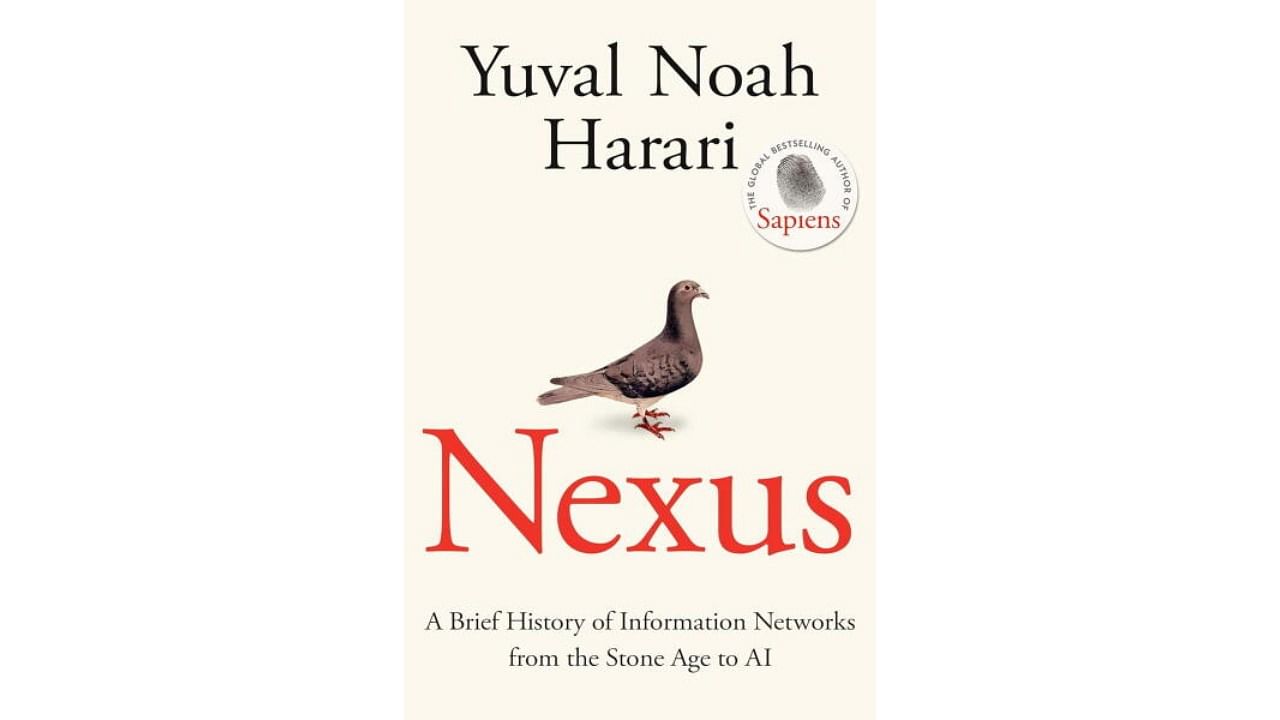
Yuval Noah Harari's new book.
Credit: PTI Photo
New Delhi: Israeli writer-historian Yuval Noah Harari's new book delves into the rise of information networks and their profound impact on the world, tracing the journey of humankind from the power of stories to the dominance of algorithms and the promises — and risks — of Artificial Intelligence (AI).
"Nexus", divided into 11 chapters, is the story of "how information networks have made, and unmade, our world". It is published by Penguin Random House "A deep knowledge of history is also vital to understand what is new about AI, how it is fundamentally different from printing presses and radio sets, and in what specific ways an AI dictatorship could be very unlike anything we have seen before. The book doesn't argue that studying the past enables us to predict the future.
"The whole point of writing this book is that by making informed choices, we can prevent the worst outcomes. If we cannot change the future, why waste time discussing it?" writes the bestselling author of "Sapiens: A Brief History of Humankind" in the book.
Touted to be a thrilling and timely exploration of the choices humanity must make to shape a better future, the book plays a "crucial role in shaping public discourse, encouraging critical thinking, and providing a historical record of technological evolution and its societal impacts".
'Will AI tilt the balance decisively in favor of one camp?', 'Will the world split into hostile blocs whose rivalry makes all of us easy prey for an out-of-control AI?', or 'Can we unite in defence of our common interests?' are among the questions that the book seeks to answer.
According to the publisher, Harari's exploration of how information networks have shaped reality offers an urgent perspective on navigating the present and the future.
"We have seen an exceptional response to Yuval Noah Harari's books in India, where he has built a significant and loyal readership. His works resonate strongly with readers who are keen to understand the complex interplay between technology, history, and society.
"At a time when AI and algorithms are rapidly transforming our lives, we believe that such books are essential for fostering informed discussions and guiding our collective choices," said Manoj Satti, SVP — sales and product and division head — at Penguin Select.
Harari, who received his PhD from the University of Oxford in 2002 and is currently a lecturer at the Department of History at the Hebrew University of Jerusalem, has also authored other bestsellers Homo Deus: A Brief History of Tomorrow and 21 Lessons for the 21st Century.
"Nexus: A Brief History of Information Networks from the Stone Age to AI", priced at Rs 739, is currently available for purchase across online and offline stores.